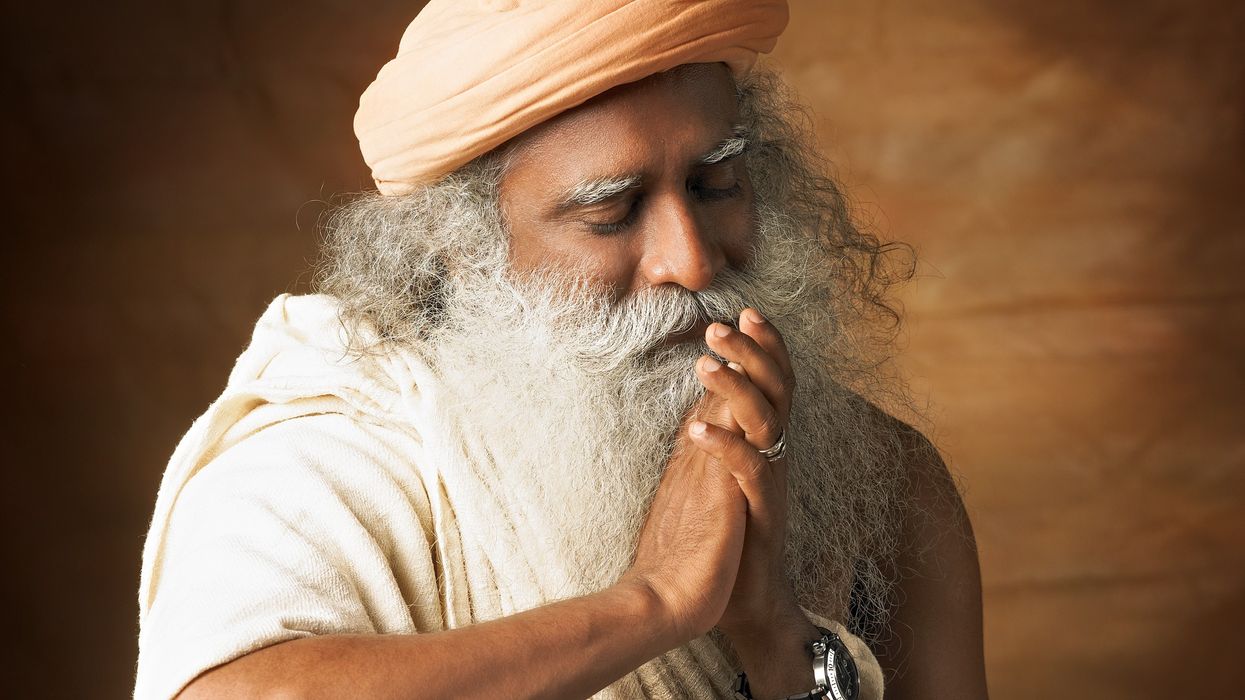THEY say habits die hard. Do the qualities you develop early in the cradle only ever die when you do?
Sadhguru: Let us look at this from a different perspective. A habit is formed essentially because it brings a certain ease to your life – it makes parts of your life automatic. You do not have to think about it. You can do it just like that.
Naturally, as a part of a human being’s defence mechanism, we form habits because, unlike other animals, we have not come with many of our traits fixed. You notice just a little bit of difference between one dog and the next. They have their individual personality, but most of their traits are fixed by nature.
However, almost everything is wide open for a human being. Because of this, as a child, you try to form a defence pattern where you create your own patterns.
Every child creates certain habits for the sake of survival. But, generally, children shake these patterns off as they grow, depending on the level of awareness created around them. Either by exposure or through education, children change dramatically – they go out for three years and when they come back, parents cannot recognise them anymore. Everything about them has changed because of exposure.
It is those who are engrossed in self-preservation who cannot drop their old habits. Those who are looking for excitement and adventure will drop their habits easily because they are always remodelling their lives whichever way is needed for the situations in which they exist right now.
Above all, if a person takes up a spiritual path, their habits will drop as there is no such thing as good and bad habits. All habits are bad. They may be instruments of survival, but once you have grown up, habits mean you are learning to conduct your life unconsciously. That may look safe, but it denies you life in many ways.
Spirituality is the fundamental tool to break all unconscious patterns we have within ourselves. What we refer to as karma is also just this. Karma means unconsciously creating patterns for oneself, not only about one’s behaviour, but about the way life happens to a person.
If people examine their lives, the very way situations happen, the way opportunities come, the way they meet people, all of it is in certain kinds of patterns. This is simply because of the kind of karmic patterns that have been created.
A spiritual process means one does not want anything to happen within oneself unconsciously. Conducting life unconsciously is not an intelligent way to live. Whether one picked up the habit in their mother’s womb or before that, it does not matter.
If people are seeking evolution, if they are seeking liberation, they have to break all their patterns – not good, not bad, but all. One does not have to wait until their last breath for this to happen.
Even if it is beyond the graveyard, the patterns will not break. Karma goes beyond that because one does not break these patterns by losing one’s body. So, it is extremely important that when alive, people strive to go beyond these patterns.
If people demolish the patterns, they will handle life consciously. For example, I am speaking now – I can speak either habitually or consciously. That is the big difference. It does not matter if I just sit and gossip, still ten thousand people want to listen, because every word is uttered consciously. Whatever the content of what I am saying, people still want to listen because every word is coming out consciously, and that has power.
If you take every breath in and out, consciously, suddenly that breath has a different kind of power. Every movement in life, if made consciously, every single movement has tremendous power. To realise the power of life, one must be conscious about it, otherwise it does not even exist for the person.
n Ranked among the 50 most influential people in India, Sadhguru is a yogi, mystic, visionary and bestselling author. He was honoured with the Padma Vibhushan, India's highest civilian award, in 2017, for exceptional and distinguished service.



